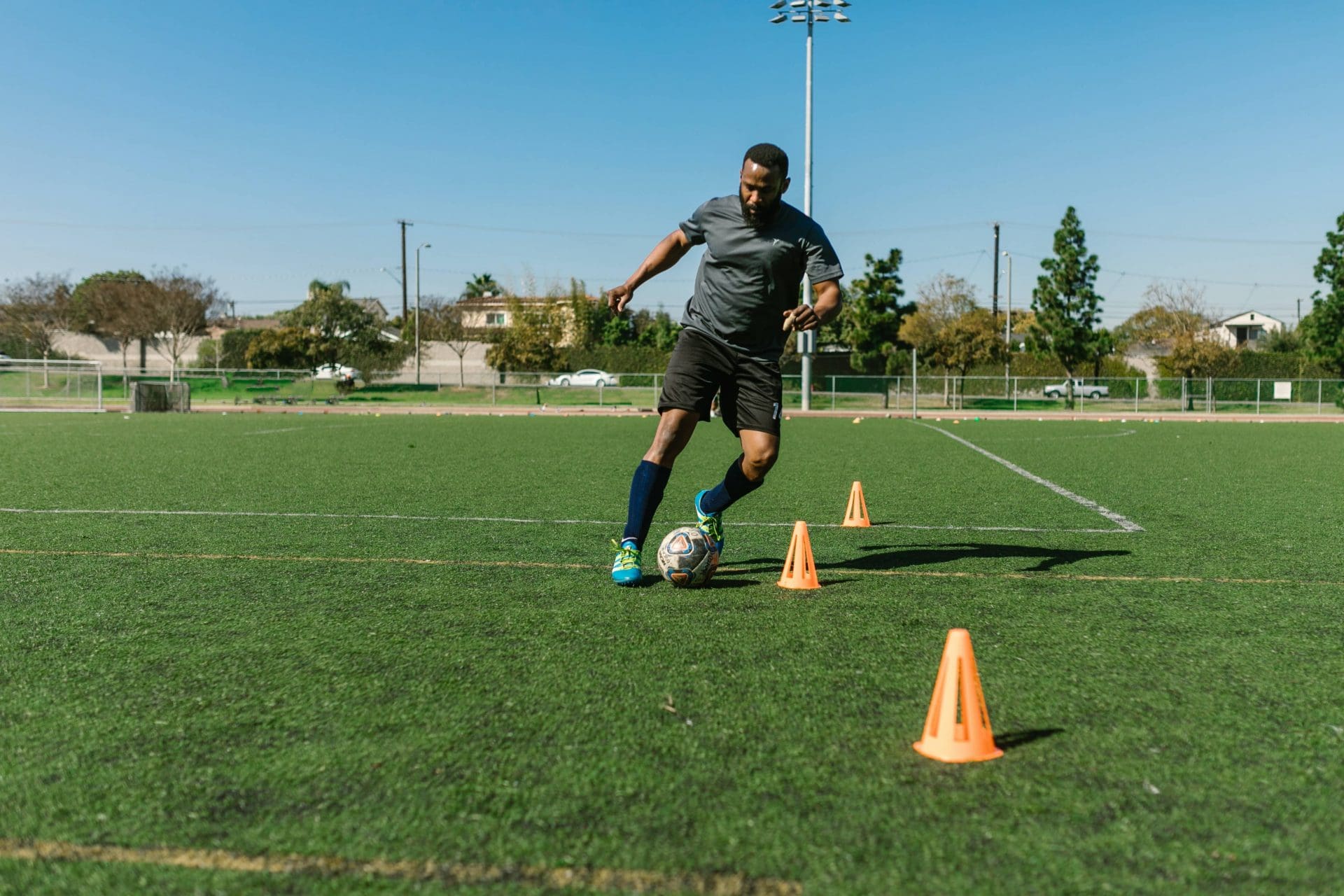
Sports Psychology Tips: How to Make Your Post-Lockdown Return to Training as Effective as Possible
Are the Coronavirus restrictions impacting on your confidence?
Just like returning to training after an injury or end of season break, athletes are going to be a little rusty. However, in addition to rustiness, there are other factors that are in play when returning from an enforced break from training.
When athletes are forced to “de-train” and deviate from their usual routines that they have grown used to, it can lead to different issues. Detraining is when you take a prolonged break from training, and the changes that your body would normally experience during training suddenly wear off, leaving your body no other option but to reset itself, causing declines in physiological functions such as muscle strength, fitness, metabolism and hormonal balance. As a result, athletes are more likely to experience negative emotions, psychological and physical stress, as well as anxiety during this period of uncertainty, which could ultimately lead to higher risk of injury, loss of confidence, unrealistic expectations, among other things.
In order to minimise these negative effects, there are a number of things that athletes and their respective support network (coaches, sport psychologists, fitness coaches, physios etc) can do to make the transition back to training as smooth and effective as possible.
A lot of factors will have played a part in what kind of training program athletes followed during isolation, whether they were constantly in their home gym or thought that Netflix and pizza were better ways to spend their time. Therefore, we need to show compassion, empathy, and be open and understanding of each of their situations, and to plan ahead using this information.
With compliance with home-workout programs varying from athlete to athlete, it’s important to take extra measures during training, such as conducting fitness and physiological checks, before determining the appropriate training workload. Another aspect that we should be wary of is their motivation level upon their returns. Those who are high in motivation may feel the need to make up for loss time or any feelings of inadequacy, resulting in potential overtraining. In order to prevent overtraining, their expectations should be discussed and managed prior to implementing any training programs, at the same time helping them understand it might take them a little bit of time to return to their pre-lockdown level. Conversely, those who are lacking in motivation may find it difficult to return to their previous routines with the same energy. They may also be struggling for confidence, as their performance levels may have dropped since lockdown and therefore not meeting their own expectations. If any of these apply to you, here are a few things you could try to increase motivation, confidence, manage expectations, as well as promote well-being:
- Come up with an intention for each session, something simple, make them fun if you can. Then come up with a different intention the next day. (I want to make my coach laugh, I want to dance to my favourite songs in between drills, I want my t-shirt to be completely soaked by the end of training etc)
- Come up with one specific part of your game that you want to improve each training session, make a plan for how you want to make that happen, then explain to yourself how that would make you a better player.
- After each session, write down 1 or 2 things that you did well. Do this after each session. Revisit them at the end of the week, read them out loud to yourself several times and try and see how it makes you feel.
- After a few sessions, ask yourself, what’s been the best part of being able to train normally again?
- Share your experiences and feelings with your teammates and friends, and vice versa. A lot of people are going through difficult times at the moment, and you can help each other through them.
If you have found this blog useful and are interested in learning more about how to deal with the uncertainty caused by COVID-19 feel free to sign up to the “The Mental Edge”.
We also have a range of blogs and podcasts that can support you during this difficult time.
Or to get in touch for one 2 one Sports Psychology Coaching with our Sports Psychologist and Mental Skills Specialist, James Lau. Who is based in the North East of England offering a telephone and online sessions.
Or if you found this article helpful, please share it with your friends, team-mates, parents or coaches.
You can also join our community – THE SPORTS PSYCHOLOGY HUB – for regular Sports Psychology tips, podcasts, motivation and support.

Best Wishes
James Lau
Sports Psychologist and Mental Skills Specialist located near Newcastle Upon Tyne, UK. With over 7 years experience supporting athletes, coaches, parents and teams to achieve their goals, quickly.
Is A Blame Culture In Team Sports Helpful For Performance?
Is A Blame Culture In Team Sports Helpful For Performance? Duncan O’Brien – Personal Wellbeing Coach Duncan is an experienced coach with a demonstrated history of working in the health, wellness and fitness industries. He is Dare to Lead trained and skilled in performance coaching and holistic health. David Charlton and Duncan O’Brien discuss the
How To Understand Neurodiversity Better In Football Refereeing
How To Understand Neurodiversity Better In Football Refereeing Nathan Sherratt – Mental Health Ambassador, Autism Charity Trustee and Speaker. Nathan is an active football referee with an off the field story which he uses to inspire and improve the lives of referees of all ages and levels. As the founder of The Third Team, he
Football Coaches: How To Help Neurodiverse Players Thrive
Football Coaches: How To Help Neurodiverse Players Thrive Adam Batstone is a fully qualified UEFA A Licence professional football coach who has worked in the academy at EFL Championship Club, Coventry City for over a decade. He is also pursuing a career as a HCPC Registered Sport and Exercise Psychologist and is currently working through
What’s To Come This Summer – Contemporary Issues in Sport
What’s To Come This Summer – Contemporary Issues in Sport By working with David Charlton, you and your organisation will be better equipped to rise to modern day challenges and better informed to thrive on and off the pitch, course or court. Where he inspires individuals and teams to: Cope with pressure and challenges more effectively
Helping A Swimmer Who Is Online A Lot Checking His Rivals Out
How To Help A Swimmer Who Is Online A Lot Checking His Rivals Out By working with David Charlton, you and your organisation will be better equipped to rise to modern day challenges and better informed to thrive on and off the pitch, course or court. Where he inspires individuals and teams to: Cope with pressure

